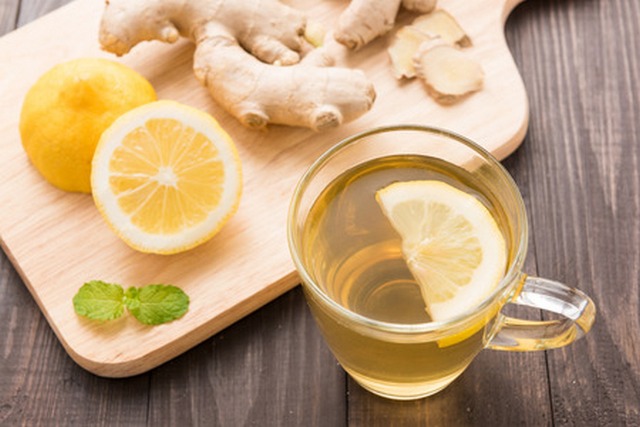Leaky gut is also known as increased intestinal permeability. It’s when the cells lining our intestines (gut) separate a bit from each other. They’re supposed to be nice and tightly joined to the cell beside it; this is to allow certain things into our bodies (like nutrients), and keep other things out.
When the tight junctions between intestinal cells weaken it can cause the gut to be more permeable – leakier – than normal. When this happens, it allows things into our bodies that should not get in; things like large pieces of protein, toxins, or even bacteria and waste.
When substances that shouldn’t be there get into our bloodstream through the “leaks” in our gut, our immune system kicks in. These leaked bits mimic a food allergy, and our body reacts accordingly. It mounts a response to try to attack the invaders, and this causes inflammation.
Leaky gut is associated with a number of issues including food allergies, Coeliac disease, autoimmune diseases (e.g., Inflammatory Bowel Disease, Hashimoto’s, asthma, type 1 diabetes, acne, eczema), joint pain, and neurological problems (e.g., multiple sclerosis). Some research shows that leaky gut might contribute to or worsen these conditions.
Also leaky gut is common in chronic fatigue syndrome (CFS). It can be caused by the roots of a Candida overgrowth piercing holes in the gut lining. In addition it can be caused be deficiencies of nutrients such as omega 3, zinc and glutamine.
While some of our gut permeability may have a genetic factor, there are lifestyle habits that contribute as well. Too much sugar or alcohol, and not enough fibre can make things worse. Even certain compounds in foods (e.g., gluten, lectins, casein, fructose) and food additives (e.g., MSG) can weaken tight junctions.
So, what should we eat, and ditch, for optimal gut health?
Avoid or reduce these
There are certain foods that irritate the gut or can cause those loosened junctions to get even looser.
Some of these include:
- Foods that you’re allergic to
- Foods with added sugar
- Foods containing MSG
- Foods with sugar alcohols (e.g., sorbitol)
- Gluten-containing grains (e.g., wheat, rye, barley)
- High-lectin foods (e.g., grains, legumes)
- Nightshades (e.g., eggplant, peppers, tomato)
- Dairy (which contains casein & lactose)
- Excessive alcohol
It’s a good idea to reduce these foods and if leaky gut is a confirmed issue for you, avoid them until the leaky gut has been addressed.
If you’re ready to learn what to do about leaky gut, contact Kate for a free 15 minute discovery call.
Eat more of these
There are also a bunch of foods that support gut health, including the intestinal cells themselves, as well as our friendly gut microbes. Many of these also reduce inflammation.
Things like:
- Probiotic-rich fermented foods (e.g., sauerkraut, kimchi)
- Prebiotic fibre-rich foods which help our gut microbes produce butyrate (e.g., leafy greens, vegetables, fruit, nuts, seeds)
- Glutamine-rich foods (e.g., bone broth, meat)
- Quercetin-rich foods (e.g., citrus, apples, onions)
- Curcumin-rich turmeric
- Indole-rich foods (e.g., broccoli, cauliflower, cabbage, mustard greens)
These are all nutritious foods that can help with gut health and overall health.
It’s not just what you eat that can affect your gut. Other lifestyle habits can help too.
Try:
- Eating slower and chewing better to help break down food better
- Eating when hungry, and stopping when satisfied
- Going to the bathroom when you need to (don’t hold it for longer than necessary)
- Getting more high-quality sleep
- Better stress management
All of these are great healthy habits to get into, gut problems or not.
Conclusion
To help keep our guts (and our bodies) in optimal condition, there are a lot of foods we should eat (and lots we should reduce).
Sticking with nutrient-dense unprocessed foods is always a good plan, whether you have gut issues, other concerns, or feel completely healthy.
And, don’t forget the importance of a healthy lifestyle like good eating habits, sleep, and stress management.
Which of these foods have you added or reduced? Let me know in the comments below.
Recipe (Gut supporting): Braised Greens with Turmeric
Serves 4
Ingredients
2 bunches leafy greens (kale, chard, collards), washed and chopped
2 tbsp olive oil
Juice of 1 lemon
½ tsp turmeric
2 dashes salt and pepper
Instructions
Heat the olive oil in a large skillet over medium heat.
Add the greens and a splash of water.
Sauté until the greens start to wilt.
Remove from heat and sprinkle with lemon juice, turmeric, salt and pepper.
Serve & enjoy!
Tip: Serve this as a side dish (hot or cold), or add to soup.
For more information about what to do about leaky gut, contact Kate for a free 15 minute discovery call.
Photo by Alicia Petresc on Unsplash



